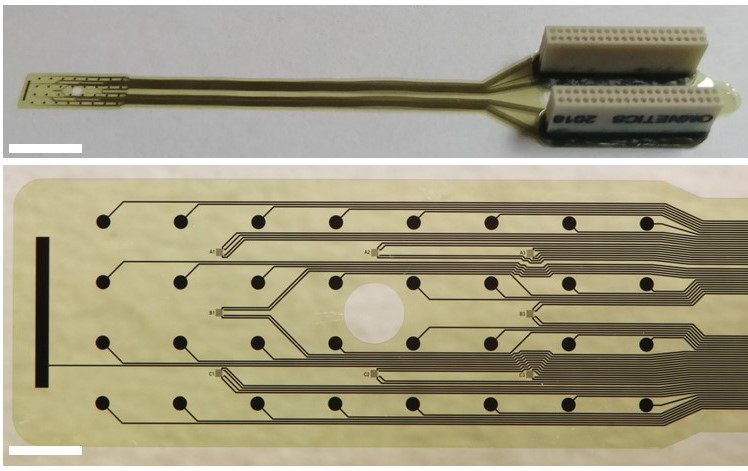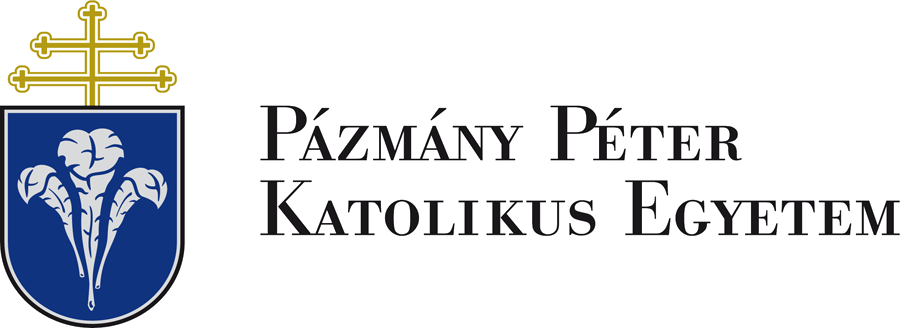
Local cooling of the brain as a therapeutic intervention is a promising alternative for patients with epilepsy who do not respond to medication. In our work, focal brain cooling in a bicuculline induced epilepsy model in rats is demonstrated and evaluated using a multimodal micro-electrocorticography (microECoG) device. We designed and experimentally tested a novel polyimide-based sensor array capable of recording microECoG and temperature signals concurrently from the cortical surface of rats. The effect of cortical cooling after seizure onset was evaluated using 32 electrophysiological sites and 8 temperature sensing elements covering the brain hemisphere, where injection of the epileptic drug was performed. The focal cooling of the cortex right above the injection site was accomplished using a miniaturized Peltier chip combined with a heat pipe to transfer heat.
More details in the following papers:
B. Csernyus, Á. Szabó, R. Fiáth, A. Zátonyi, Cs. Lázár, A. Pongrácz, Z. Fekete, A multimodal, implantable sensor array and measurement system to investigate the suppression of focal epileptic seizure using hypothermia, JOURNAL OF NEURAL ENGINEERING 18 (2021) 0460c3
B. Csernyus, Á. Szabó, A. Zátonyi, R. Hodován, Cs. Lázár, Z. Fekete*, L. Erőss, A. Pongrácz, Recent antiepileptic and neuroprotective approaches of brain cooling, SEIZURE: EUROPEAN JOURNAL OF EPILEPSY 82 (2020) 80-90
